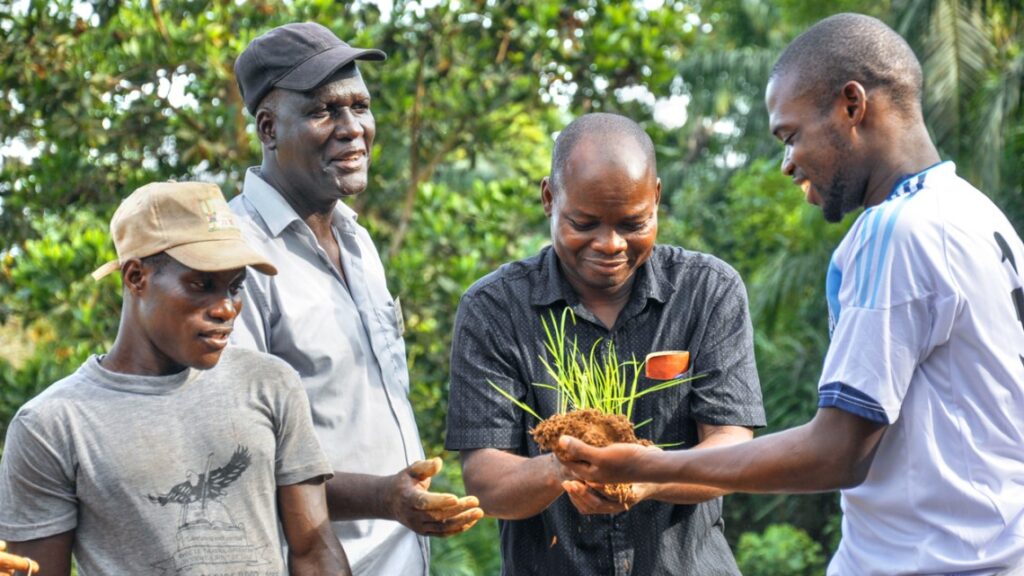Read in
A week of collaboration and learning came to a close in Fiji, as key delegates from Papua New Guinea, Vanuatu, and Fiji gathered to explore new ways of financing the agricultural value chains for the kava and coconut industries.
The Agricultural Financing Model Exhibition Tour, held from 5 to 9 August, was a transformative event, bringing together stakeholders to share insights, discuss challenges, and formulate strategic action plans.
Organized by the Pacific Community (SPC) and the International Trade Centre (ITC) under the ACP Business-Friendly programme, funded by the European Union and the Organisation of African, Caribbean, and Pacific States, the event let participants discover innovative financing models that could be tailored to their industries.
This was a critical moment for strengthening the agricultural value chain in both PNG’s coconut sector and Vanuatu’s kava industry.
Building knowledge and solutions: Workshops and expert sessions
A highlight of the event was a workshop on Agri Value Chain Finance, led by Simon Thompson, a specialist on inclusive and innovative finance at the Asian Development Bank. He provided vital insights into financing models that could support the growth of agriculture in the Pacific.
These models are designed to help smallholder farmers and cooperatives improve access to finance, boosting their ability to invest in farms, increase productivity, and enhance the value of their agricultural products.
Florence Rahiria, Deputy Director of SPC’s Land Resources Division, underscored the essential role of agriculture in sustaining livelihoods, ensuring food security, and driving economic growth. ‘Today, we are here to tackle these challenges and find innovative solutions,’ she said in her opening address.
She emphasized the importance of sharing knowledge and experiences to overcome the significant barriers that smallholders face in accessing financial resources.
‘This is a unique opportunity for us to learn from one another and build stronger collaborations,’ she added. ‘Our collective knowledge can drive transformative change and create lasting impacts for farmers, cooperatives, and communities across the Pacific.’
Learning from success: Best practices in agri-lending
Throughout the tour, delegates engaged in meetings that offered valuable insights into agricultural finance.
A key session with the Fiji Development Bank and the Fiji Sugarcane Growers Fund highlighted the challenges and best practices in agri-lending, particularly for sugarcane. They showcased successful models that could be adapted for the coconut and kava value chains.
A visit to the Fiji Sugar Corporation (FSC) allowed delegates to delve deeper into the company’s innovative farmer contracting system, managed through the Sugar Industry Tribunal. The FSC’s robust farmers’ database and record-keeping systems showed the benefits of transparent and effective relationships between farmers and financial institutions.
Delegates also visited key production facilities such as Lami Kava, Fiji Kava, and Punjas and Sons Limited’s Ocean Soap and Biscuit factories. These visits provided hands-on insights into the challenges and innovations in farming and manufacturing, offering a unique perspective on how businesses are navigating the modern agricultural landscape.
Shaping the future: Collaborative action plans
As the tour came to a close, delegates from Vanuatu and PNG synthesized their key takeaways during a debriefing session. Together, they developed action plans to implement an Agri Value Chain Finance Facility aimed at boosting the coconut and kava industries in their home countries.
A key outcome of the tour was a business-to-business meeting between Punjas and Sons Limited and Coconut Resources Limited (CRL). This meeting opened discussions on the potential for CRL to supply virgin coconut oil from PNG to Fiji, presenting new avenues for trade and collaboration.
The ACP Business-Friendly programme, implemented by ITC’s Alliances for Action, is dedicated to promoting inclusive commercial alliances and investments, enhancing value addition and competitiveness, and strengthening farmer support services.
Through initiatives like this, the programme works towards building a resilient network of smallholder farmers and processors, ensuring they can thrive in the global market.
This transformative week demonstrated that with the right financial tools, knowledge sharing, and collaboration, the future of agriculture in the Pacific can be brighter and more prosperous for all.
Distributed by APO Group on behalf of International Trade Centre.



